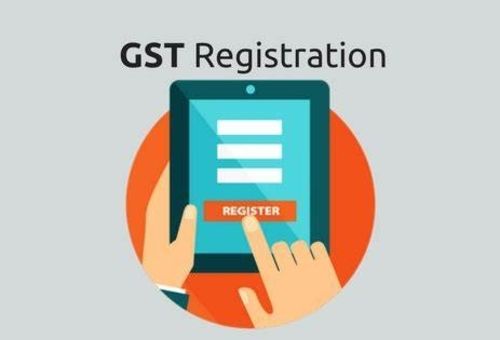Recognizing the Conveniences of the most effective GST Registration Services in Singapore
Recognizing the Conveniences of the most effective GST Registration Services in Singapore
Blog Article
From Start to Complete: The Ultimate Roadmap to GST Enrollment for Organizations Seeking Financial Stability
Browsing the intricacies of Product and Solutions Tax (GST) enrollment is a vital action for services pursuing financial stability. From recognizing the basic principles of GST to abiding by post-registration standards, the procedure can seem discouraging initially glimpse. Breaking down the roadmap into workable actions can streamline the registration journey for companies looking to enhance their economic standing. Allow's discover the important parts that make up this ultimate roadmap and discover how each stage adds to laying a strong structure for economic success.
Recognizing GST Fundamentals
Diving right into the fundamental principles of Item and Services Tax Obligation (GST) is essential for acquiring a thorough understanding of its implications on services and the economy. Input Tax Credit History (ITC) is a substantial feature of GST, permitting organizations to claim credit scores for tax obligations paid on inputs, reducing the overall tax concern. Recognizing the basics of GST is essential for companies to conform with tax obligation laws, handle their funds successfully, and contribute to the country's economic development by taking part in a clear tax obligation system.
Eligibility Criteria for Registration
To register for GST, organizations need to satisfy certain qualification criteria developed by the government. The key qualification demand is that any kind of service associated with the supply of goods or solutions with a yearly aggregate turnover above the threshold limitation set by the authorities must sign up for GST. As of the existing laws, the threshold limit for GST enrollment is a yearly aggregate turnover of 40 lakhs for organizations operating within a state, with the exception of special category states where the limitation is 20 lakhs. In addition, specific companies are required to sign up for GST irrespective of their turnover, such as interstate suppliers, casual taxed persons, and businesses accountable to pay tax obligation under the reverse charge device. It is crucial for businesses to extensively analyze their turnover and purchase types to determine their GST registration commitments precisely. Failing to register for GST when eligible can bring about penalties and lawful consequences, making it essential for businesses to comply with the specified qualification standards.
Files Needed for Enrollment
Having satisfied the eligibility requirements for GST registration, services should now ensure they have the requisite records in location to continue with the enrollment process successfully. The files needed for GST enrollment normally consist of evidence of service constitution, such as collaboration act, registration certification, or consolidation certificate for different kinds of companies. In addition, companies need to provide papers establishing the primary location of company, such as a rental arrangement or electrical energy expense.
Step-by-Step Registration Process
Commencing the GST registration procedure involves a series of structured actions to ensure a compliant and seamless registration for companies. The primary step is to go to the GST Look At This website and submit the enrollment form with exact details of business entity. Following this, the candidate receives a Temporary Referral Number (TRN) which is made use of to return to the application procedure if it's not completed in one go.
Following, all called for documents according to the list given by the GST portal demand to be uploaded. These documents normally include evidence of business identification, address and enrollment evidence of marketers, economic declarations, and click to read service entity's frying pan card.

Post-Registration Compliance Guidelines

Final Thought
Finally, companies looking for monetary stability must understand the essentials of GST, fulfill qualification requirements, gather necessary files, adhere to the detailed registration process, and conform with post-registration guidelines - Best GST registration services in Singapore. By adhering to these actions, services can make certain compliance with tax guidelines and maintain economic security over time
Furthermore, certain organizations are called for to sign up for GST irrespective of their turn over, such as interstate providers, laid-back taxable individuals, and services liable to pay tax obligation under the reverse fee mechanism.Having actually satisfied the eligibility standards for GST registration, businesses need to currently ensure they have the requisite papers in place to continue with the enrollment procedure efficiently. The records required for GST enrollment commonly consist of evidence of business constitution, such as partnership act, registration certificate, or unification certificate for various kinds of companies. Additionally, businesses need to offer papers establishing the principal location of business, such as a rental contract or electricity expense.Commencing the GST enrollment procedure involves a series of structured actions to guarantee a smooth and certified registration for businesses.
Report this page